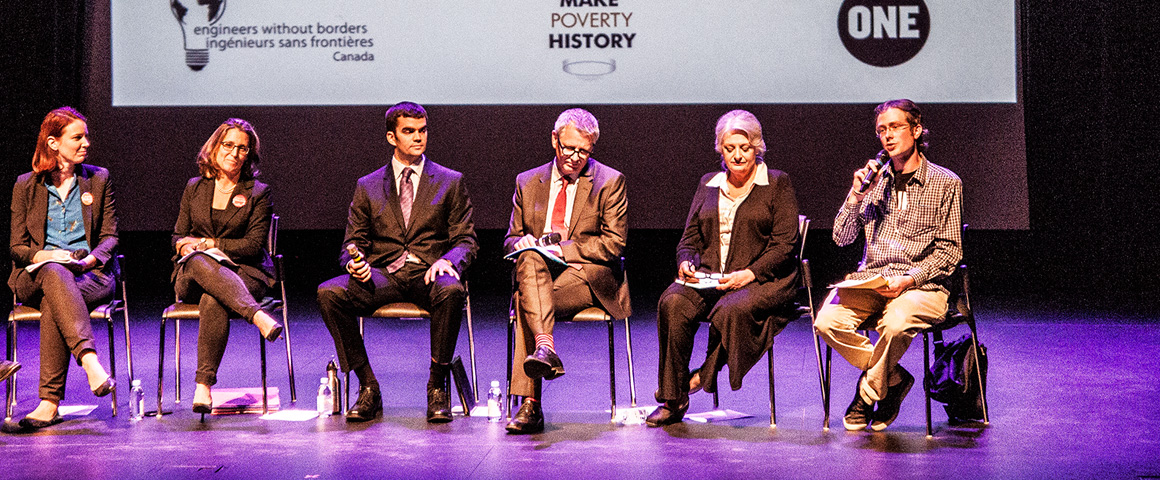The Communist Party of Canada has welcomed a court ruling which nullifies the requirement that candidates pay a $1000 financial deposit to run in federal elections. The case was launched by Kieran Szuchewycz in November 2015, shortly after the most recent federal election. The Alberta Court of Queen’s Bench found that the deposit requirement violates the Charter of Rights and Freedoms. While the Liberal government is considering an appeal, it appears that the ruling may have widespread implications for Canadian electoral laws, removing a financial barrier which restricted the ability of independents and smaller parties to take part in elections.
Szuchewycz had unsuccessfully attempted to run as an independent candidate in former PM Stephen Harper’s riding of Calgary Heritage. His case cited several arguments, two of which were rejected by Justice Avril Inglis, who upheld the Elections Canada requirement to submit 100 signatures of eligible voters resident in the riding as well as the $1000 deposit.
On that point, Inglis declared the $1,000 deposit requirement “is of no force and effect.” Szuchewycz had argued that while the deposit was refundable to candidates who meet other reporting obligations, it constitutes a wealth test deterring poor and marginalized people from becoming candidates.
Election deposits have been required since 1874, with the aim of preventing so-called “frivolous” candidates from ballot status. Deposits were half refundable until 2000, when they were made fully refundable as part of the ruling in the Figueroa case. Named for the leader of the Communist Party of Canada at the time, that historic case was a major victory over arbitrary Election Act rules which hindered smaller parties and independents.
The Supreme Court and an Ontario Court had both previously found constitutional issues with deposit requirements. In the Ontario case, a justice had argued, based on the Ontario elections law, that “a right is limited if one must pay $1,000 before one can exercise it.”
In the wake of the Alberta ruling, acting chief electoral officer Stéphane Perrault stated Nov. 8 that the deposit requirement provision will no longer be applied by Elections Canada “effective immediately.” That could still change if the government made a successful appeal, but this appears unlikely.
Paul Cavalluzzo of Cavalluzzo Shilton McIntyre Cornish LLP, who practises constitutional and electoral law, said the decision was “fair and not particularly surprising.”
“The judge found there are less intrusive or more proportional ways to ensure a candidate is serious and protect the integrity of the electoral system,” he said. “Obviously she felt by demanding the deposit it is a disincentive for people with impecunious means to run for office.”
He also noted that, “If you’re wealthy, you can afford the $1,000 and still be a frivolous candidate… The focus should be on encouraging people to run for office, and if you impose this for people who can’t afford it that shouldn’t be lawful.”
Responding to the ruling, the Central Executive Committee of the Communist Party of Canada made the following statement:
“We welcome the ruling in the Szuchewycz case as another important victory over the historic application of unfair and undemocratic restrictions against electoral rights in this country. By its very nature, any requirement for a financial deposit targets working class and low-income people who seek to become candidates in elections.
“The exorbitant requirement for a $1000 deposit was a significant barrier for independents, and particularly for smaller parties which rely on the support of their members rather than donations from wealthy individuals and corporations. This ruling builds on the historic Figueroa case, in which our party won a major court victory against Election Act rules which forced small parties to nominate at least 50 candidates and put up $50,000 in deposits before spending a nickel on a campaign, in order to keep their registered status.
“In the most recent federal election, our party had to meet a wide range of requirements to nominate 28 candidates, such as collecting thousands of signatures, and providing the deposits for each candidate to submit through a complicated nomination process. These requirements do nothing to encourage debate over the crucial issues in an election campaign, but they do force parties such as ours to devote time and energy on overcoming hurdles to participation. This exercise makes it even more difficult to get our message out to voters, or to succeed in taking part in some all-candidate forums which unfairly exclude many candidates.
“We note that election deposits have been abolished in provincial legislation in at least two provinces for several years now, eliminating a systemic barrier to democratic electoral rights. We hope that the government takes note and drops any idea of an expensive and unnecessary appeal of this ruling, and instead focuses on ways to encourage wider democratic popular participation in the electoral process. This should include action on PM Trudeau’s pledge to end first-past-the-post elections, in favour of a mixed-member proportional representation system which would ensure that all votes are truly counted when it comes to electing our members of Parliament. The Prime Minister’s decision to abandon this platform pledge was a shameful, self-serving decision by a party with a history of making progressive promises, only to impose reactionary policies when in power.
“The Communist Party also continues to demand other democratic electoral reforms, such as a steep reduction in campaign spending limits, measures to ensure that all parties and candidates are provided fair and equitable coverage in the mass media, and a prohibition against candidate forums which are open only to certain parties. This must also apply to leaders’ debates. This will enable electors to cast an informed vote, free of the current undemocratic filtering. As well, right to recall legislation should be enacted. Steps in these directions would help to ensure that election campaigns are opportunities for a full and free debate on critical issues, rather than a corporate media horse race between a few parties which uphold the status quo or propose only minor reforms.”




